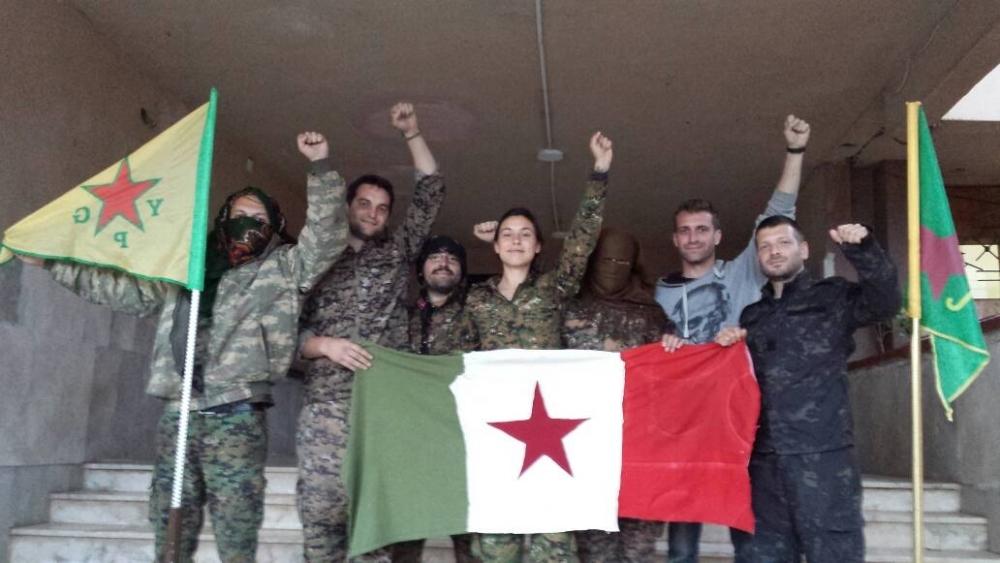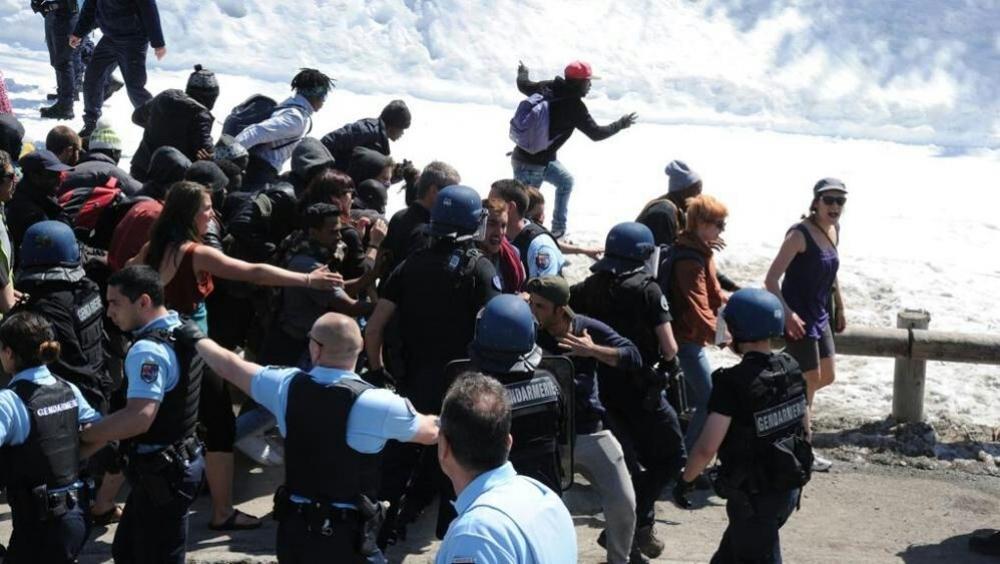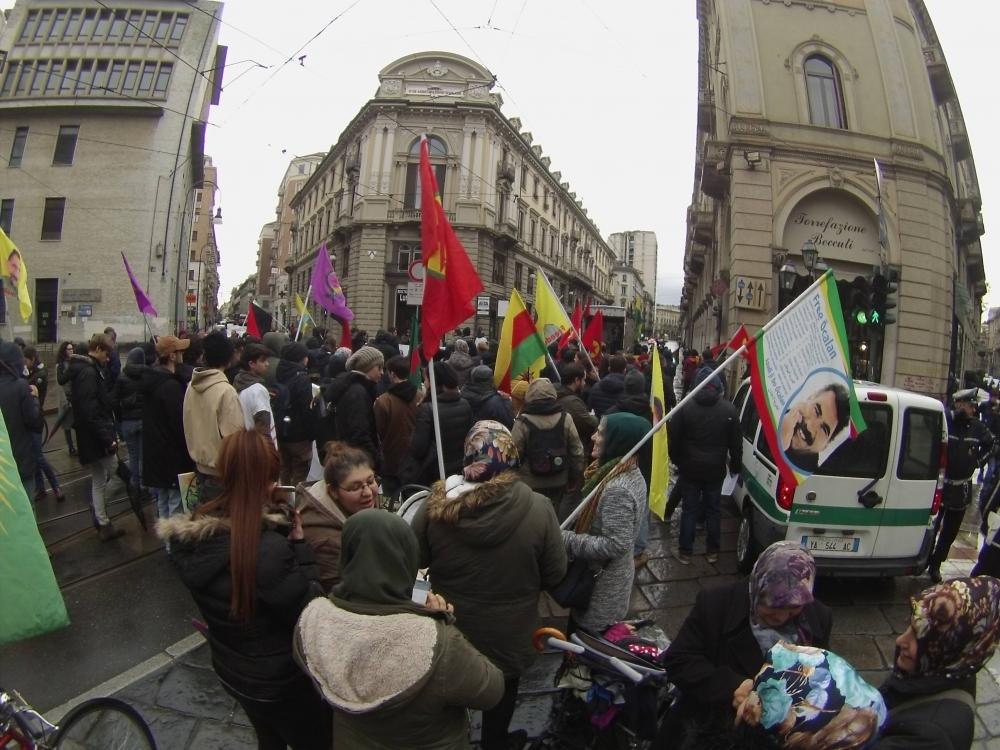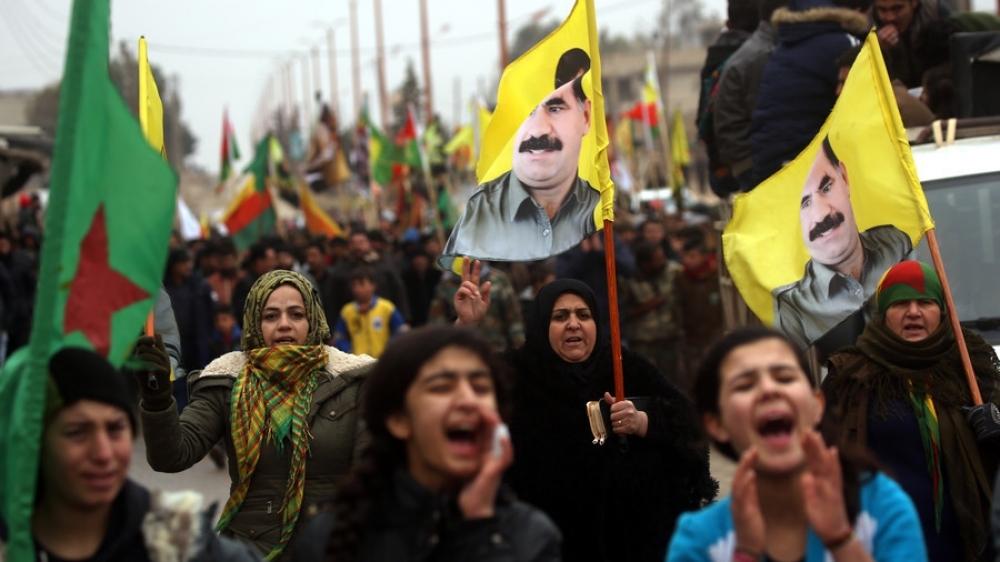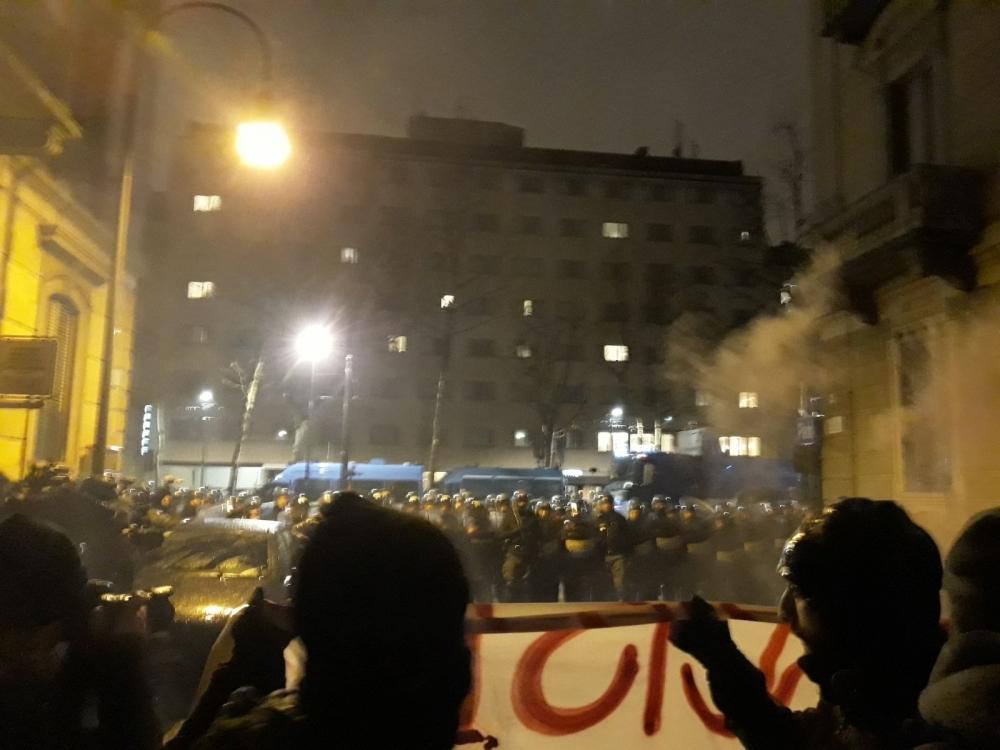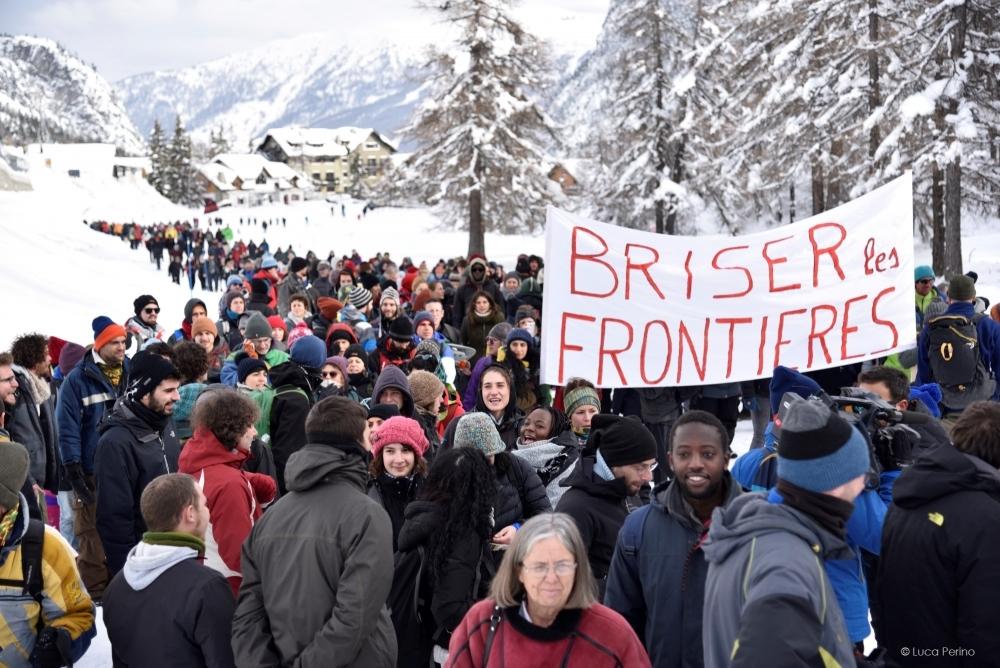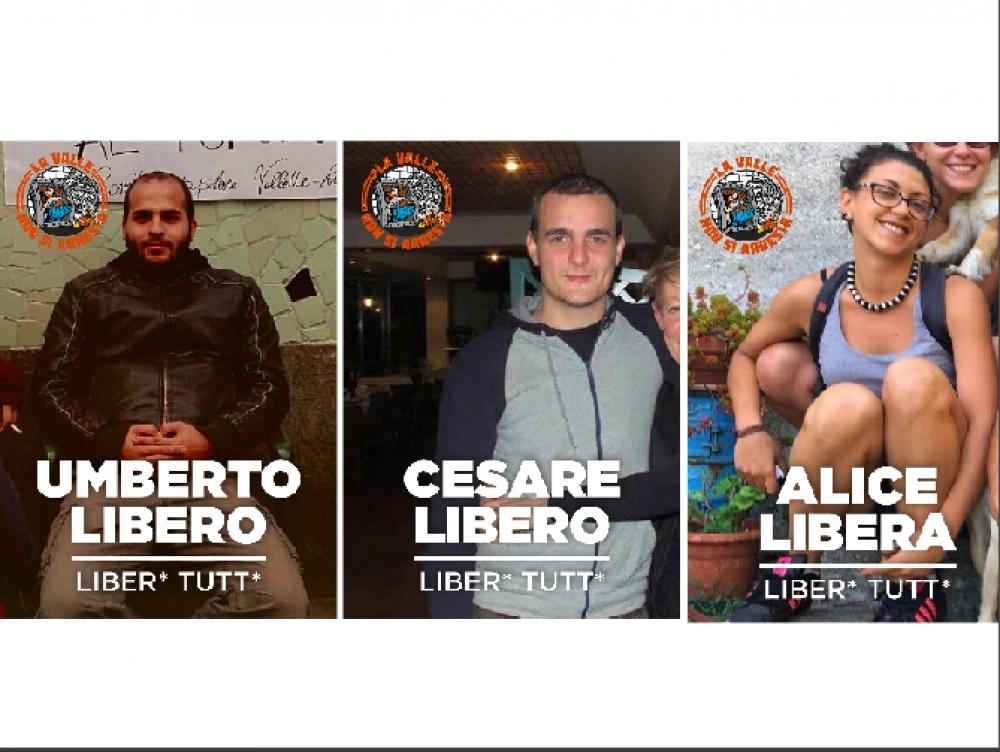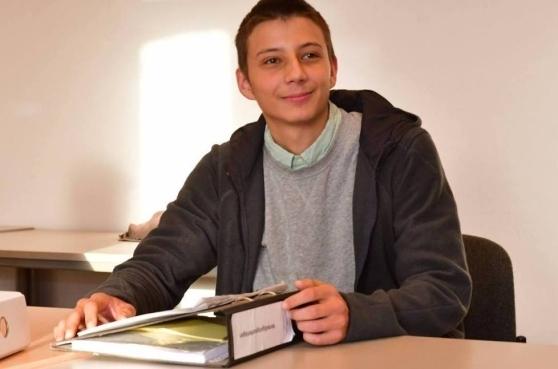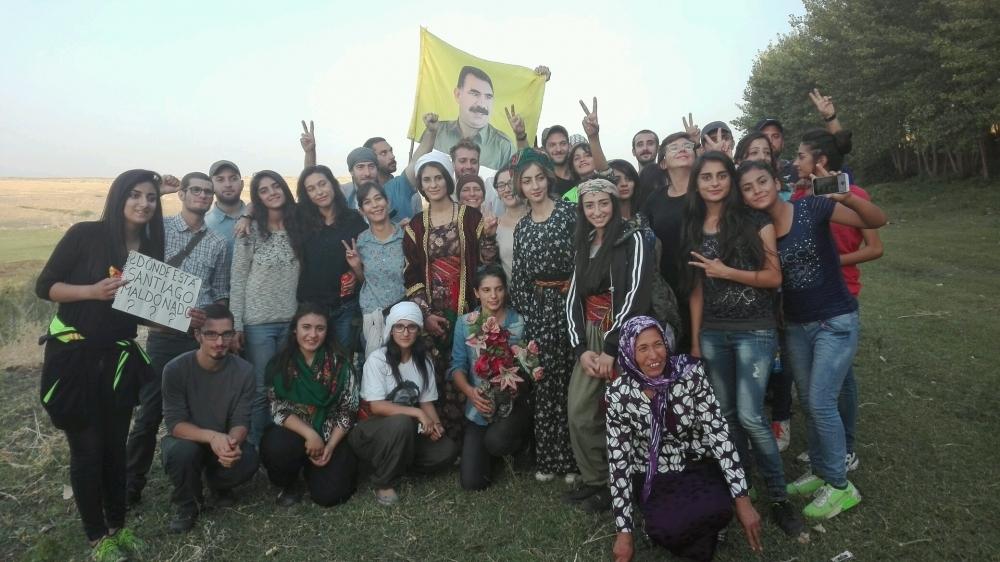Trans-national movements in the capitalist crisis. The provincialization of the euro-crisis in an antagonist geopolitics, between insurrections and early autonomous institutions
Talk by Laboratorio Occupato Crash social centre at Counterpower In The Crisis, national meeting of Italian autonomous collectives, activists and social centres in Bologna last October 13-14th – original text here
In order to introduce the workshop day of our meeting with the talk dedicated to “Trans-national movements in the capitalist crisis. The provincialization of the euro-crisis in an antagonist geopolitics, between insurrections and early autonomous institutions” I would like to consider the conclusion of the short yet intense meeting call document that says “We are strengthened by the experience of that extraordinary 2011, a year of insurrections and revolutionary processes that continues to last still today as a real possibility of the abolition of the present state of things”. And I would like to try examining in depth the problem proposed by the conclusion of our call that talks about insurrections and revolutionary processes and considers their duration as extended, stretching out to the present day. This introduction immediately places us in a high-tension part of the global territory, not only because we declare to draw political strength from what has happened and is happening beyond our peninsula, but also because we talk with participation about insurrections and revolutionary processes, we take part in them. Here we are not discussing Arab springs, and we are not longing for modestly resolute indignations of public opinion. On the contrary, we are considering insurrections and revolutionary processes, mass mobilizations or initiatives carried out by minorities characterized by majoritarian political attitudes that present themselves in their solid materiality. Without granting anything to the journalistic stylizations or to the efforts of biased narration and media hijackings worked out by our counterparts, we must make the effort of considering what has happened and what is happening by launching an antagonist point of view in the appropriate position, in other words, among the poor, the exploited, and the bombed people who try to organize themselves inside, against and beyond the crisis, while in the next moment looking up towards the heaven of geopolitics of the multipolar world in which we have no friends among the forces contending for power. And how could we have any friends up there, among the old and new emerging powers, when we know that the reason of their reciprocal tensions lies in capitalist redefinition of production, profits and rents. What interests us in the scenery of the crisis is that these tensions between the poles of power remain open and deepen , showing the weaknesses and the inadequacies of their ruling elites; we are not interested in their resolution neither by waving Russian or Chinese flags, nor Indian or Brazilian ones or, even less, US or German ones. Not for merely ideological or ideal reasons, but due to a belligerent, antagonist and very materialist position that recognizes in the extraordinary year 2011 the arising (still very uncertain and ambivalent) effort of a pole of ours and of our side that tries to make its way on Earth in order to liberate itself from the regimes of crisis and austerity.
These revolutionary processes are to be inserted into the materiality of the clash. This means that, in addition to record the incredible achievements they are capable of attaining, we cannot but consider that they are also susceptible to political and cultural regression and that they are exposed to corruption (in the sense of retreats, arrests and changes of direction), and to contradictions. But let’s be careful, as contradictions, corruption efforts and regression aren’t irresistible. Quite the contrary, once exceeded or broken they can be (and they are) causes for further developments.
For us, it is pivotal to succeed in keeping our cool and to analyze the reasons of the developments and of the regressions – we are interested in evaluating them politically in regard to our great goals and to our medium term targets of liberation from the crisis. We must educate ourselves in handling the temporality of the movements and above all in the temporal and spatial autonomy that they express. With the outbreak of the crisis, the very temporality and spatiality which we were accustomed to blew up and when we look to, or are outright protagonists of the social movements, we must train the antagonist gaze to move with an eye on the immediate and the other on the infinite, as a nice militant rap poem says. In recent months, we very often had the occasion of exchanging views about what is happening in Tunisia starting from some militant surveys; often in debates the question “But then in Tunisia it is all over, did they win?” was a recurring one, and our answer was “no, everything has just started!” And we considered the recent insurrections, the great mobilizations and forms of organization of the proletarian side not as something to be abstractly simplified in a form such as that of an event as if they were apparitions of the Virgin Mary. On the contrary, we reasoned about their being modulations, variations and also discontinuities, though all internal to determined power relations, all internal to a genealogy of class conflicts and of social and political antagonism that crosses the territories. In this way, we introduced the problem of duration or rather of the durations of the revolutionary processes as well as of the counterpart. When looking at North Africa of today and at the islamist Thermidor: what a terrible, incredible paradox! While the form of modern sovereignty cracks and crumbles in the crisis of representation in Europe, in the United States, in the Maghreb but not only – a great part of the political islamisms, more or less radical or moderate, recognize the profane source of power, the bourgeois form of representation! We are dealing with a long duration of social and political processes, in this case the making of liberal democracy beyond the West, that today shows up both as reaction and as crisis. And on the other side we have been considering, for example how in Tunisia, in the aftermath of some extraordinarily intensive peaks of mobilizations of an insurrectional character, an extensive phase of struggles and organization ensued – a phase that makes the great Casbah mass sit-in go on up to this day, structuring itself through variations, jumps, leaps. Therefore, the antagonist gaze must make the effort of being able to grasp, and appropriate itself of, the autonomous temporality of the movements; otherwise we are making the hour hands of the Capital’s clock move in order to understand the social movements that are about to break those hour hands and want to do it, because they pulse through the time of exploitation, of the crisis. Just as the revolutionaries that during the Paris Commune shot on the clocks to break the temporality, the measure of time based on exploitation, and to oppose to it the time pulsed through by the struggles for freedom, dignity and social justice. Here, our time must beat – it must be made moving with the gears of the clock of the Paris Commune!
It is thus on this temporality that the processes of organization of the struggles ranging from the Mediterranean region and the Atlantic shore are to be set. The great insurrectional waves and the rise of the destituent power of the movements against austerity are joined by early important experiences of organization of the struggles in terms of autonomous mutuality, forms of self-government and counter-istitutionality. It is counter-power in the crisis. Who besieges the palaces of power in Spain, in Greece, in Egypt, and in Tunisia are the same social subjects that are trying to free cooperation by appropriating themselves of social production and reproduction, by occupying and self-managing factories, services and neighbourhoods. But this movement of reappropriation in its destituent and constituent tendency does not orient itself towards a negotiation with the counterpart. Rather, it chases and undermines it as well as organizing itself beyond it. With the impossibility of a New Deal, both the governments of democratic transitions and those of austerity – and as the crisis deepens, the movements when they try to experiment practices of appropriation – are doing nothing but posing the problem of power. To further problematize: when capital does not want or cannot resort to the production of welfare, it stands as a power that destroys wealth and forms of life themselves by leaving police and national socialist and nationalist populist excrescences to patrol the territory. After all, what does Golden Dawn do in Greece, if not substituting the word “class” of the movements’ discourses and practices with “race and gender”? What do the islamisms do in North Africa when they assault trade unions headquarters or form popular committees to support reaction? They work as reactionary garrisons of the state in crisis and try to provoke, corrupt and hijack the issues of struggle against austerity and poverty to neutralize their political revolutionary energy. What we are considering assumes a certain pivotal character as well as a certain urgency, especially if we look to the stature of the challenge recognizing in the steps forward taken by the movements only some early attempts, some early allusions, that present some great inadequacies and limits. But all of this doesn’t describe a catastrophic scenery where sad passions dwell at all; on the contrary, if we look at that extraordinary year 2011 and up until today we can’t but tell ourselves that “everything has begun”! It is an empirical fact that we can’t elude and that we must take into account and that must make us asking ourselves how to manage to accumulate and direct counter-power in our territories, both aware of the possible face-offs with the enemy counterparts but also, and above all, of the extraordinary opportunities. In front of us we have the variations of the movements in Spain, in Greece, in Portugal, Tunisia and Egypt and not only, we have a variegated spectrum of durations and spatialities of counter-institutions and of insurrectional peaks, and starting from them we must catch a potentially general tendency to co-research[¹] in our high-tension territories.
Here we are – an experimental methodology of trans-nationality starting from the struggles. If we take on this methodology, we have ahead of us an antagonist geopolitics that is succeeding in “provincializing Fortress Europe” by making a Mediterranean of struggles against crisis and austerity emerge. It is a methodology that breaks the pyramid of Euro-Med at whose summit there is the white male that tries to jostle the bodies of African female workers on the sidewalks, that drowns the freedom of movement a step away from Lampedusa and that through punches coerces migrant work on the chains of poverties in the European Union. Our methodology aspires to break this hierarchy even more tightened up by the crisis – starting from the reversal of the Euro-Med, this blasphemy to be cancelled from the movements’ debates, to be left only on the mouths of the bosses, of the 1%.
In the tensed multipolar world, it is possible to take part in our pole, to our polarity that makes its way. For this reason, our current mode is all but “catastrophe” but, on the contrary, a space and a time of possibilities. The method of an antagonist geopolitics and gaze, in addition to making the temporality and spatiality of the movements its own, must – according to us – make a logic of reversal work through a travel with Lenin to Zimmerwald*, right now when the crisis causes the war drums to beat. It is the logic of Leninian disruption and reversal in the geopolitical space of the Great War – seized as a space for revolutionary initiative “which abolishes the present state of things”. It is this logic that moves itself among and against the powers of the multipolar world recognizing them as hostile and as enemies. It is this logic that makes us recognize ourselves in the emerging trans-national movements our territory, from which move our gaze and our initiative. Within this logic, our rebel Mediterranean is the space where the movements are already building barricades for peace, our peace, against their world… a world of wars, miseries and poverty.
*The Zimmerwald conference was held in the autumn of 1915 gathering many socialist organizations that were experiencing a painful debate about how to evaluate the Great War and how to address it. At the end of the conference, the moderate platform for a peace without annexations of Trotsky prevailed but, for the first time in the context of the European workers’ movement, the Leninian theses that echoed the positions of Liebknecht considering the possibility of reversing the imperialist war into a revolutionary process were formulated and diffused. It is to this logic of Leninian reversal that we refer to in our talk.
[¹] Co-Research (Conricerca, in Italian) was developed by Italian Marxist Operaist thinker Romano Alquati in the sixties. It is a sociological research methodology that, along the survey process, emphasizes active participation by the researcher to the activities and the discussions of the subjects, to allow mutual political growth. For a partial bibliography: http://www.uninomade.org/bibliografia-conricerca-composizione/
Ti è piaciuto questo articolo? Infoaut è un network indipendente che si basa sul lavoro volontario e militante di molte persone. Puoi darci una mano diffondendo i nostri articoli, approfondimenti e reportage ad un pubblico il più vasto possibile e supportarci iscrivendoti al nostro canale telegram, o seguendo le nostre pagine social di facebook, instagram e youtube.











